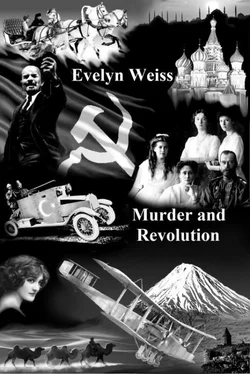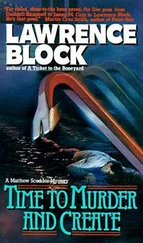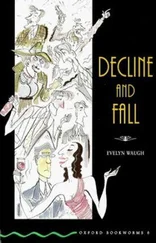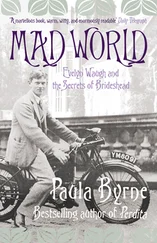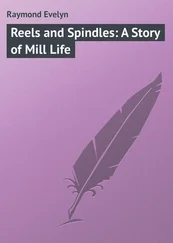“Our steamer to Sweden – it’s disappeared!”
“The Narva River is tidal, Professor. The steamer has had to move from Ivangorod harbor, because of the tide.”
“That’s nonsense, Mr Bukin! Look at these other ships – they are still here. And I know that the tidal range in this part of the Baltic is practically zero. What on earth is going on?”
“Nothing is wrong… I tell you with the greatest respect, Professor Axelson, that your ship has had to move, simply because of the tide. You will be able to board your vessel in St Petersburg.”
The professor’s face is blank with disbelief, as Bukin carries on. “Tomorrow morning, a train will take you to the city. It is not far – eighty miles or so. Tonight, to ensure your comfort in Ivangorod, a house has been made available for you. I will accompany you to your accommodation. And, for your convenience and protection, I have assigned an officer. He will visit you tomorrow morning, bringing first-class rail tickets for both of you. He will also travel with you on your train journey, to prevent any unexpected accidents. So you can put your minds at rest. By tomorrow afternoon, you will be aboard your ship.”
The horse-drawn carriage that waits for us on the quayside is a simple affair, almost a country cart. The driver tugs the reins, and the horse plods along through the streets of the town. We’re a long way from the front line here, but I notice a large group of soldiers in the town square, rows of shiny buttons on their uniforms. They’re sitting at trestle tables, eating. Behind them is a long, low building. Bukin explains. “One of Russia’s many new hospitals. Most patients are war casualties. Those men are convalescents; they will soon be returning to service on the battlefield.”
Our carriage trundles on into narrower streets, then an area of wooden dwellings. After half an hour, fields and patches of woodland appear. I whisper to the professor.
“Where are they taking us? We seem to be going out into the countryside. Surely there must be a hotel in Ivangorod.”
“Miss Agnes, they do things differently in Russia. We are no doubt being taken to some grand country house, so that we can be accommodated in style. I think Mr Bukin merely intends to show us Russian hospitality. But the business of our steamer and the tide – that is odd, very odd.”
The carriage stops at a cleared area in a dense pine forest. In the clearing is a single-storey cottage, made of rough wooden planks. But it’s a delightful place, surrounded by a colorful vegetable garden. We step past pumpkins and zucchini to the door of the house, where a young man greets us with a broad smile. Bukin introduces him, and bids us enter the house.
“This is Kaspar – a very good cook. He will make a meal for you, and then leave you for the evening. There are two bedrooms in the house, with beds freshly made for you.
Tomorrow morning, my officer will call here at the cottage, with a carriage to take you to the station. Everything has been taken care of. So now, I will thank you both for the pleasure of your company this afternoon, and take my leave of you. I wish you a very fond farewell.”
Bukin bows low, then steps up into the carriage, and he’s gone.
I feel ill. My stomach groans; our evening meal was a plentiful mess of stringy meat. I’ve been sick once already: I made my excuses and sneaked to the bathroom immediately after eating. Kaspar left the cottage soon after, whistling to himself as he strode away down the lane.
It must be around midnight. I try not to think of my meal, and turn over in bed. The light of a full moon shines through thin drapes. Then my stomach complains again. I have to get up and go to the bathroom. I step across the room to my door, hearing the floorboards creaking under my feet. I put my hand out in the dark, reaching for the handle of my bedroom door.
It’s locked.
I rattle the handle. Then I call out “Professor!” But there’s no reply. The professor’s room is opposite mine, on the other side of the corridor, and the wooden walls are thin. The professor must be sleeping very deeply. But something makes me put my eye to a tiny crack in the planks.
I see a faint, yellowy light, flickering in the corridor. It shines on the walls opposite, and the door of the professor’s room. Someone is holding a small lamp aloft. I hear another faint creak of floorboards. A person is standing in the corridor. I think about the isolation of this cottage, far from other houses.
“It must be Kaspar – he’s come back because he’s forgotten something.” But even as I say this to myself, I know it’s not true.
Slowly, as if moving methodically, the stranger is stepping along the corridor, getting nearer to my door. I peer through the crack, and a man’s chest and arms slide into my sight. I can’t see his face, but I can tell that he is wearing what may be a Russian military uniform; a jacket of dark blue serge. Above the jacket collar, I see something shining: a thin silver chain around the man’s neck. Then I look lower, and see arms cradling a mass of white objects. They are pieces of screwed-up newspaper, and one by one they are dropping from the intruder’s hands.
Then I smell something. Kerosene.
I shout, and hammer at the door. But nothing happens, except that the smell gets stronger. The intruder is going quietly about his work, not caring that I’m shouting. He knows I’m locked in my room, and that there are no other houses nearby, no people to hear me.
There’s no time for thought. I run to my window. I can see the catch clearly in the strong moonlight. I pull the catch, and swing the window to open it. It moves three inches, then hits something hard.
I pull back the drapes widely, and now I can see. The window should open outwards – but two large planks have been nailed diagonally in an X-shape across the outer frame.
I look over my shoulder, at the door of my room. I see a red flash at the foot of the door, and hear the roar of flames in the corridor.
I push at the window with all my strength, but the planks holding it in are immovable. I cough; smoke is already seeping into my room. Glancing back, I see that every crack and gap in the interior wall of my room is beginning to glow like a furnace.
Can I swing the window inwards, instead of outwards? I tug at it and, resisting, it gradually bends inwards into the room. Then my arms slip, as I’m racked by another cough.
My eyes are blinking with the smoke. I look at the X-shape of the planks against the moonlit sky. The window is maybe three feet wide. I pull myself into the triangle of space below the cross of the planks. My nightdress catches on the windowsill, but I’m moving forward, writhing like a worm through the narrow gap. My hips grind on the wood, but I keep pulling. Moments later, I breathe fresh air, and my face hits the soil.
I struggle to my feet and run round to what must be the professor’s window. I hear the crackle of the fire, but all is dark on this side of the house. In the gloom I see another X-shape of planks, nailed across the window.
“Professor!” I’m screaming at the top of my lungs. Is he already dead? Then, in the twilight, I notice something. Whoever nailed up our windows isn’t very clever. Sitting on the windowsill is a claw hammer.
The planks are deeply nailed. I strain my utmost at the hammer to lever the nail from the wood. Suddenly the nail pops out. With its lower end now free, the plank swings down. I turn my attention to the other plank. A few seconds later, that plank too swings free.
The window catch is closed from the inside. My eyes cast around wildly, seeing nothing I can use to prize it open. The roaring of the blaze is now loud in my ears. Smoke begins to sting my nostrils.
Читать дальше
